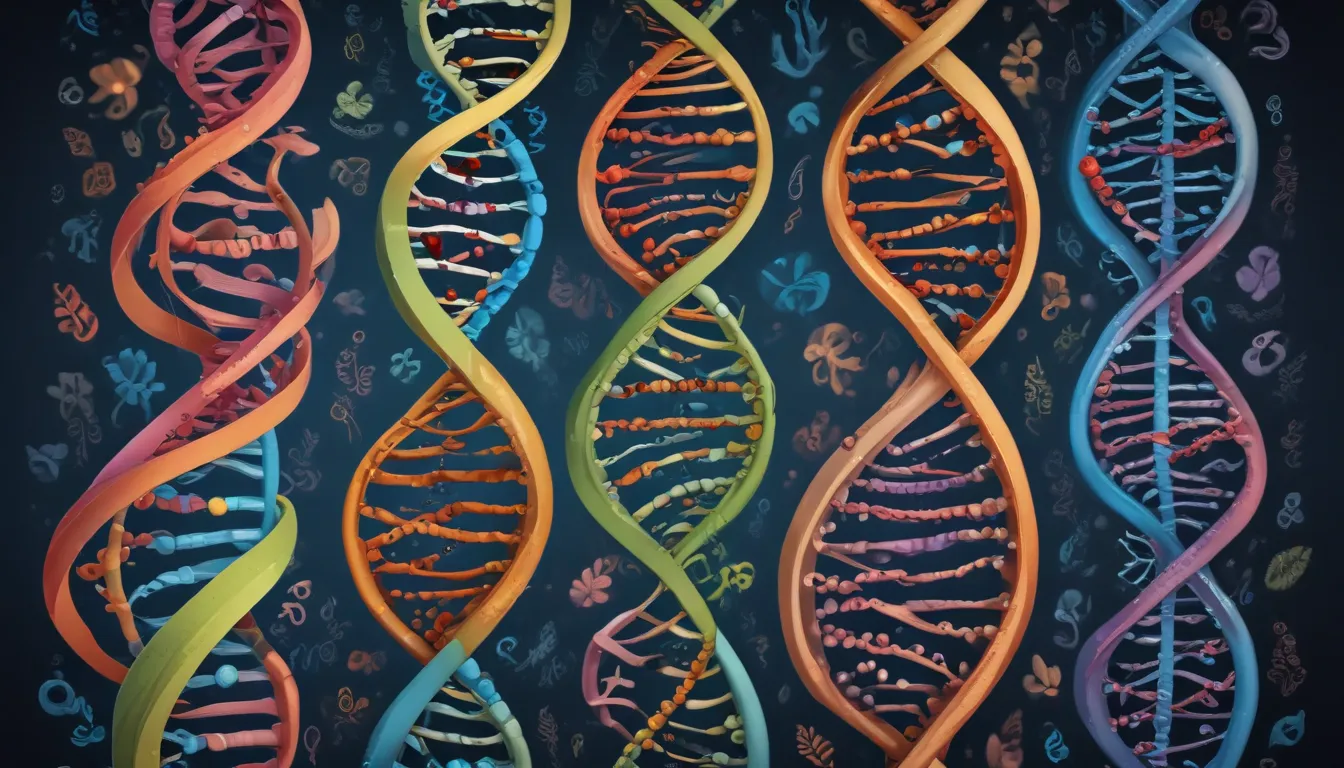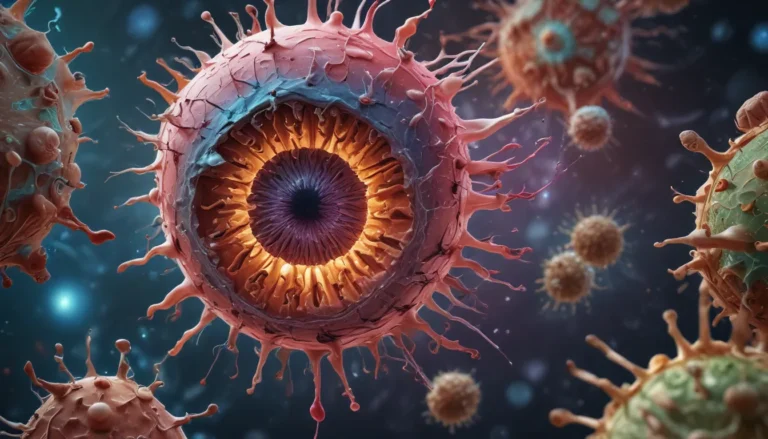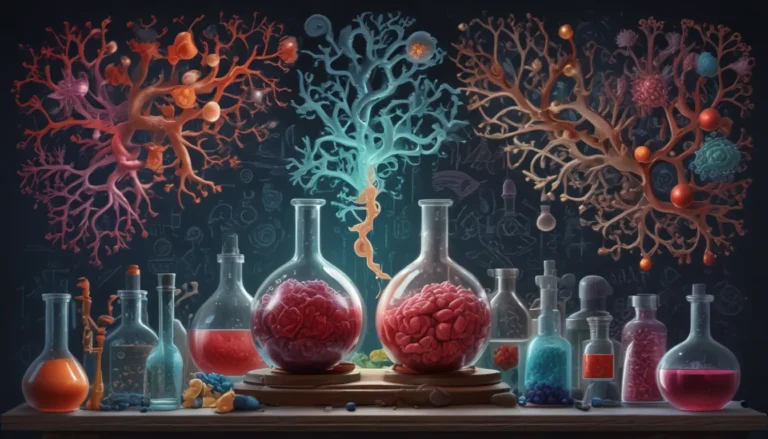A Note About Images: The images used in our articles are for illustration purposes only and may not exactly match the content. They are meant to engage readers, but the text should be relied upon for accurate information.
Genetic recombination is a captivating process that shapes the diversity of life on Earth. It involves the exchange of genetic material between chromosomes, resulting in unique gene combinations. From influencing evolution to repairing DNA damage, the significance of genetic recombination cannot be overstated. In this article, we will delve into 15 enigmatic facts about genetic recombination to unravel its complexities and marvels.
Genetic Recombination: A Fundamental Process in Biology
Genetic recombination is a vital mechanism that contributes to the diversity and evolution of life forms. By exchanging genetic material between DNA molecules, this process creates new gene combinations that drive genetic variability.
The Intricacies of Genetic Recombination During Meiosis
Meiosis, the specialized cell division process that produces gametes, is where genetic recombination takes place. It ensures the shuffling and mixing of genetic information between homologous chromosomes, ultimately increasing genetic diversity.
Crossing Over: The Key Event in Genetic Recombination
Crossing over, also known as homologous recombination, is a crucial step in genetic recombination. This process involves the exchange of DNA segments between homologous chromosomes, leading to the formation of new combinations of alleles.
Repairing DNA Damage Through Genetic Recombination
In addition to generating genetic diversity, recombination plays a crucial role in repairing damaged DNA. By fixing breaks, lesions, and other types of DNA damage, genetic recombination ensures the integrity and stability of the genome.
The Role of Enzymes in Guiding Genetic Recombination
Specific enzymes, such as recombinases like RecA and DMC1, facilitate the process of genetic recombination. These enzymes catalyze DNA strand exchange and promote the formation of crossover events.
Unveiling Recombination Hotspots in the Genome
Certain regions of the genome, known as recombination hotspots, are more prone to undergoing genetic recombination. These hotspots are associated with specific DNA sequences or epigenetic marks that increase the likelihood of crossover events.
Impact of Genetic Recombination on Human Health
Error-prone recombination events can lead to chromosomal rearrangements or genetic mutations, resulting in the development of genetic diseases. Examples include chromosomal translocations and copy number variations.
The Connection Between Genetic Recombination and Cancer Development
Aberrant recombination can contribute to the development of cancer by generating oncogenic fusion genes or altering the expression of tumor suppressor genes. Faulty recombination events play a role in cancer progression.
External Factors Influencing Genetic Recombination
Factors such as radiation, chemical exposure, and certain drugs can influence the frequency and pattern of genetic recombination. These external factors may increase the risk of genetic abnormalities or promote the emergence of drug-resistant strains.
Genetic Recombination’s Impact on Evolution
Genetic recombination is a driving force behind evolution. By creating new gene combinations, recombination contributes to genetic diversity, enabling species to adapt to changing environmental conditions and survive.
Unveiling the Potential of Genetic Recombination in Breeding Programs
In agricultural and animal husbandry settings, genetic recombination plays a vital role in breeding programs. Breeders select individuals with desirable traits and promote recombination to develop new varieties with improved characteristics.
The Influence of Genetic Recombination on the Immune System
Recombination of gene segments in immune cells, such as B and T lymphocytes, enhances the diversity of antigen receptors. This diversity is crucial for the adaptive immune response and the recognition of a wide range of pathogens.
Explore the Complexity and Dynamics of Genetic Recombination
Genetic recombination is a complex process that involves multiple mechanisms and regulatory factors. Understanding its nuances is essential in shaping the genetic landscape and contributing to the remarkable diversity of life on Earth.
Conclusion: Unraveling the Marvels of Genetic Recombination
Genetic recombination is a captivating process that underpins the diversity and evolution of organisms. Through the exchange of genetic material, new gene combinations emerge, leading to variations in traits and the potential for adaptation to changing environments. From maintaining genetic integrity to enabling genetic diversity, genetic recombination is a cornerstone of life’s complexity.
As we uncover the enigmatic facts about genetic recombination, we gain insights into its mechanisms and implications for various fields, including agriculture, medicine, and evolutionary biology. The study of genetic recombination continues to offer new revelations into the mysteries of DNA mixing and its profound impact on life.
FAQs
-
What is genetic recombination?
Genetic recombination involves the exchange of genetic material between DNA molecules, resulting in new gene combinations. -
What is the significance of genetic recombination?
Genetic recombination plays a vital role in generating genetic diversity, crucial for adaptation and evolution. -
How does genetic recombination occur?
Genetic recombination happens through mechanisms like crossing over during meiosis and the exchange of DNA segments between homologous chromosomes. -
Are there ethical considerations regarding genetic recombination?
Genetic engineering raises ethical questions about manipulating genetic material using techniques like gene editing and genetic recombination. -
Can genetic recombination be artificially induced?
Scientists can induce genetic recombination through experimental techniques like gene targeting and tools like CRISPR-Cas9. -
Does genetic recombination occur in all organisms?
While prevalent in most eukaryotes, genetic recombination occurs to a lesser extent in prokaryotes, such as bacteria.
Through a journey into the complexities of genetic recombination, we uncover the wonders of life’s intricate mechanisms and the profound impact of DNA mixing on evolution and adaptation. Explore the mysteries of genetic recombination and embrace the marvels of nature’s diversity.






